Only seven African countries have laws regulating genetically modified organisms (GMOs).
This is despite the fact at least 11 African countries have genetically modified crop approvals.
African countries face the triple planetary crisis of climate change, biodiversity loss, and pollution, and genetic technologies have been proposed as potential solutions to these challenges.
The countries are South Africa, Sudan, Eswatini, Ethiopia, Malawi, Nigeria, Kenya, Burkina Faso, Egypt, Ghana, and Zambia.
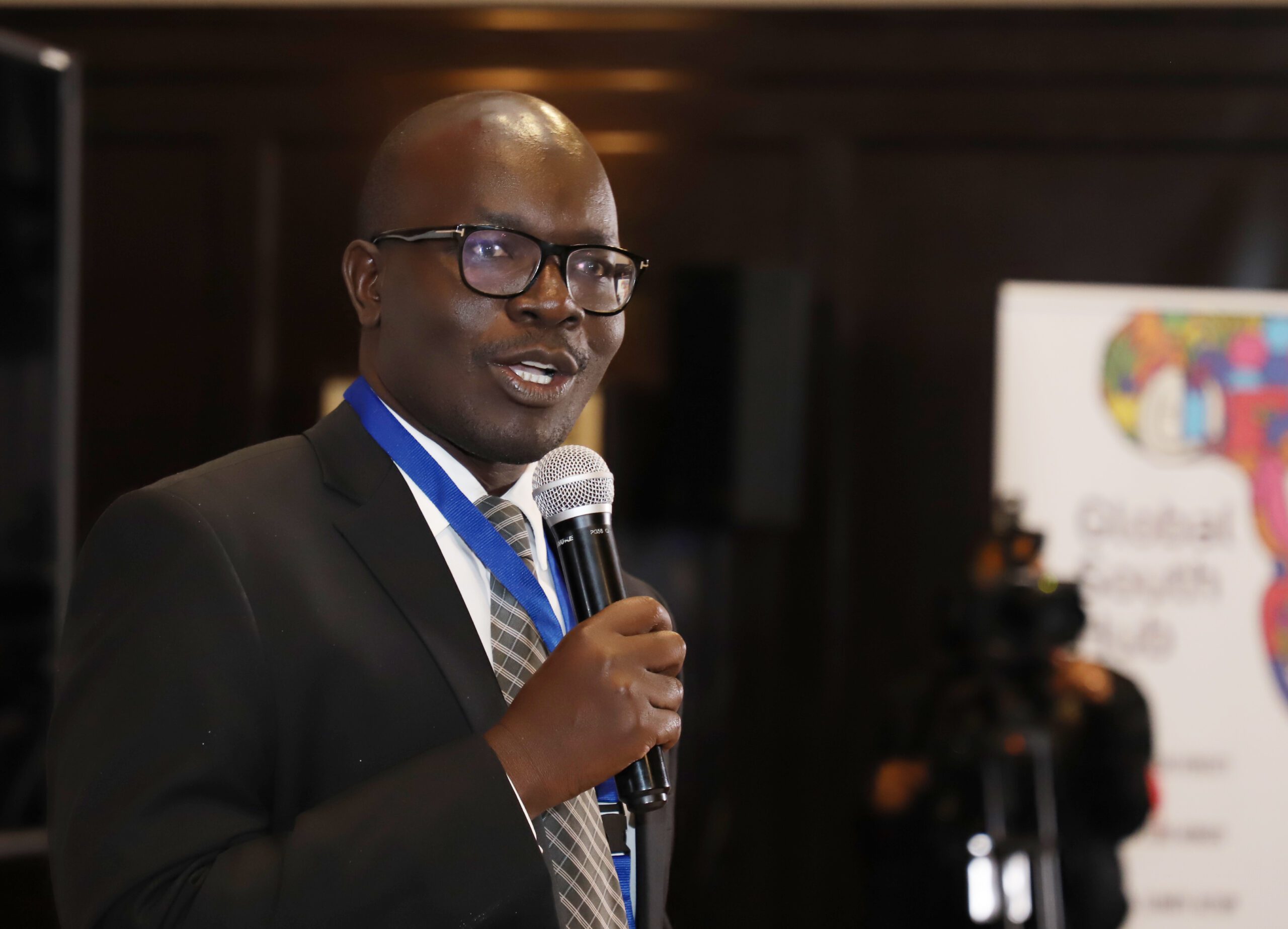
“The rest of the countries do not have. The question we need to ask ourselves is, why is that so? If they were ever to have, what should they look like? What are the issues we need to address?” said Prof Collins Odote, the chair of the Association of Environmental Law Lecturers in African Universities (ASSELLAU).
“From a broader perspective, within the African Union framework, is there a need for us to have model frameworks, which are updated to be able to address critical issues in that conversation.”
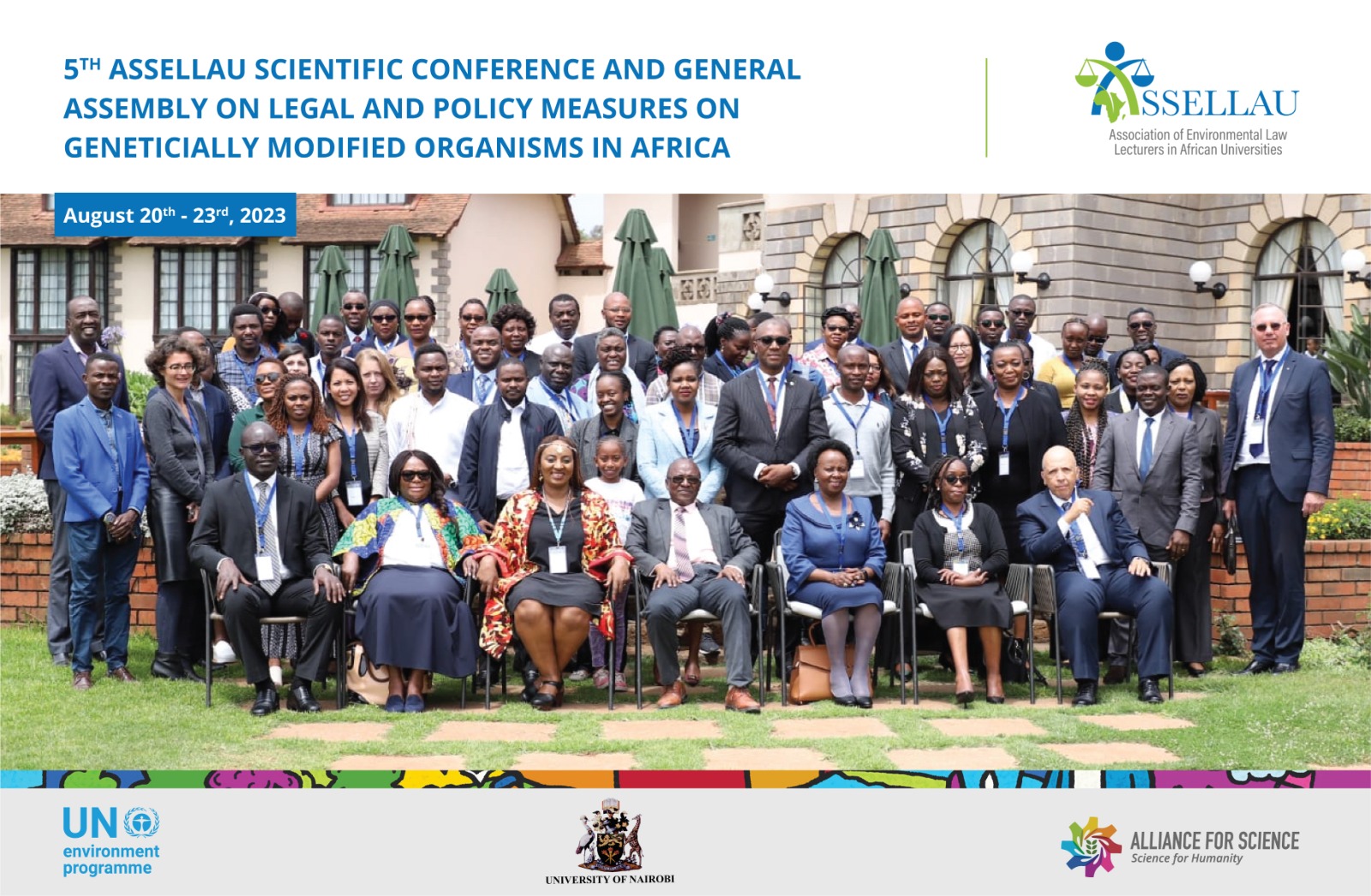
Prof Odote was speaking in Nairobi, Kenya, during the 5th ASSELLAU Scientific Conference and General Assembly under the theme, ‘Legal and Policy Measures on GMOs in Africa.’
He said African countries face the triple planetary crisis of climate change, biodiversity loss, and pollution, and genetic technologies have been proposed as potential solutions to these challenges.
However, concerns about environmental and health impacts continue to emerge.
“The science-policy interface is becoming more and more pertinent because the intricate threats of scientific progress have influenced how society is shaped.”
“Questions are raised in the science-policy-law interface on how to incorporate environmental and health considerations in the context of the scientific advancements,” said Prof Odote, who is also the Associate Dean of the Faculty of Law and Director of the Center for Advanced Studies in Environmental Law at the University of Nairobi (UoN).
Kenya has approved 58 GMO projects – 40 for contained use in the laboratory or greenhouse, 15 for confined field trials, and three for environmental release or commercial cultivation.
The three-day conference was convened in partnership with the United Nations Environment Programme (UNEP) and the Alliance for Science and takes place on the sidelines of the Africa Biennial Biosciences Conference held in Nairobi on August 22-23, 2023.
The conference has representatives from various African countries, including Kenya, Uganda, Zimbabwe, Botswana, Nigeria, Namibia, Tanzania, South Africa, Ghana, Cameroon, and Sierra Leone.
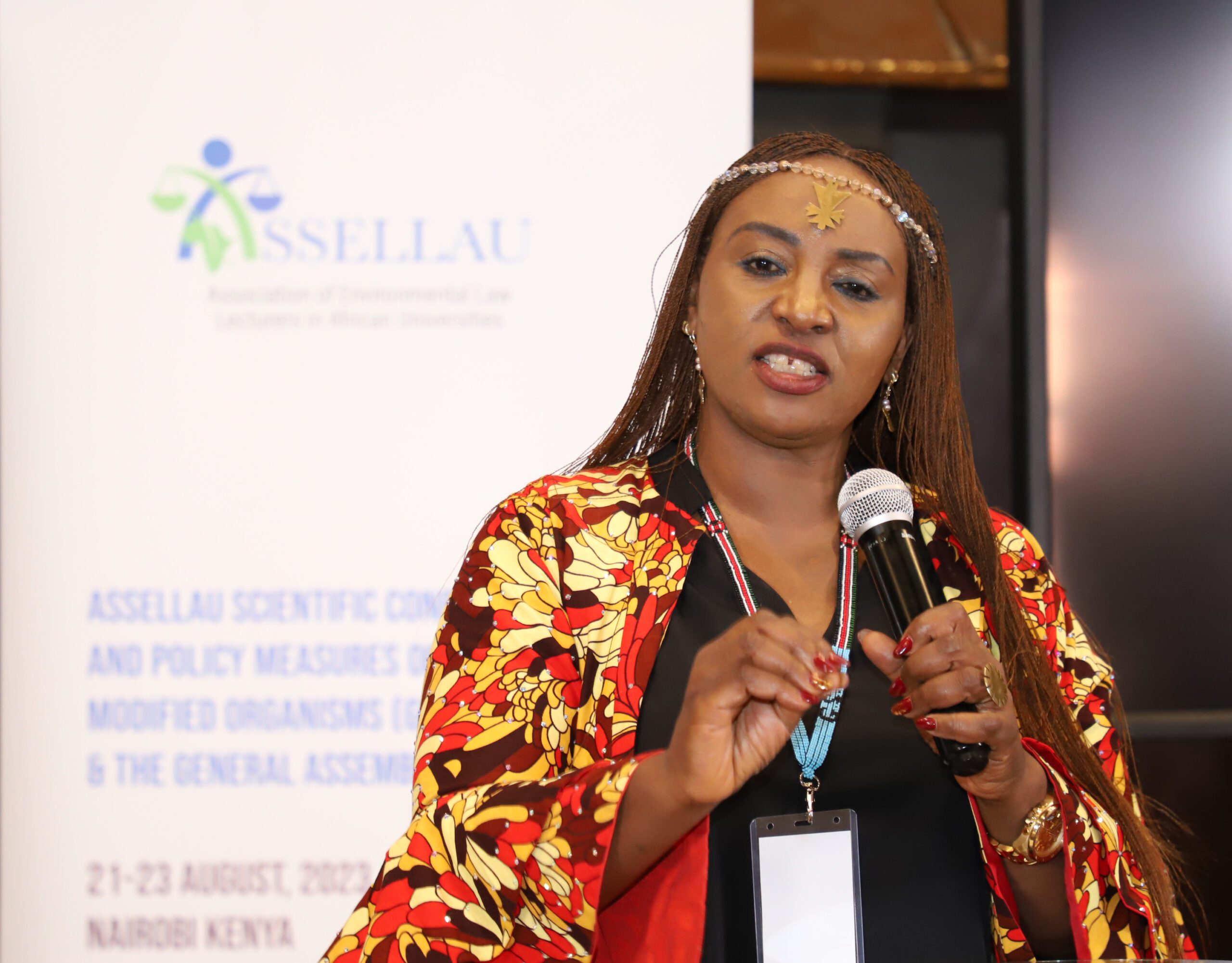
Alliance for Science Executive Director Sheila Ochugboju said lawyers need to come on board to broaden their understanding of scientific issues and where it leads to development.
“We need to have a proactive approach to how we interact with the legal community. We are forever firefighting, and this needs to stop. Let’s support better and help with capacity building where necessary,” said Dr Ochugboju.
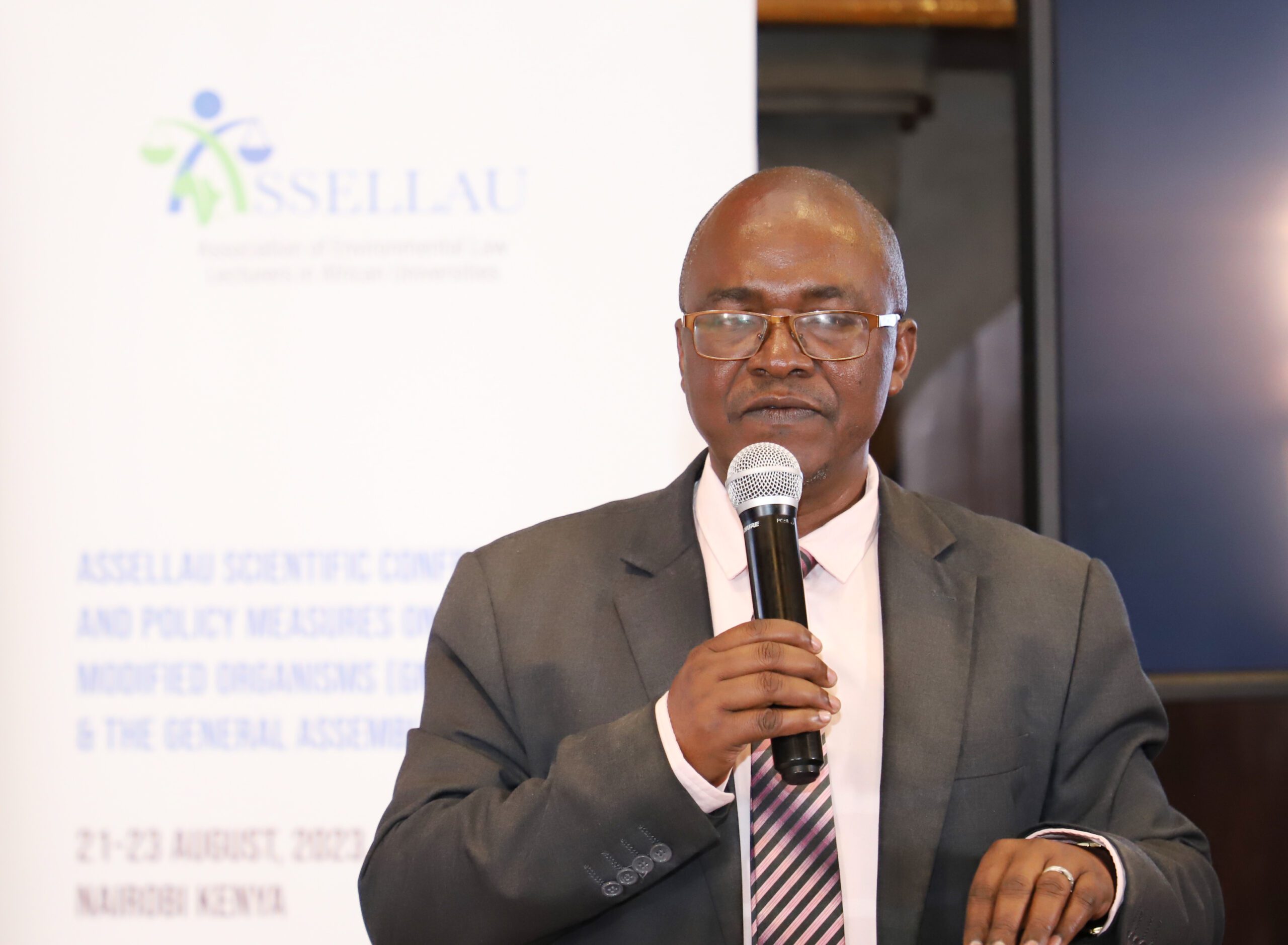
The conference was officially opened by Prof Justus Munyoki, the Director of Research and Enterprise at UoN, who represented the university’s Acting Vice Chancellor, Prof Julius Ogeng’o.
Prof Ogeng’o, in a speech read on his behalf by Prof Munyoki, said the conversation on legal and policy measures on GMOs in Africa is timely for scholars and policy actors in Africa.
Kenya lifted a 10-year ban on cultivating and importing genetically modified (GM) crops in October 2022.
“The sustainability of our food systems and the food security of our people are under significant threat at this time. The causes of these threats are many: climate change impacts; deteriorating soils and land degradation; land use conversion; expanding populations, among others,” he said.
Prof Ogeng’o said many African countries struggle with drought, crop pests, and diseases. For example, in Kenya, stem borers are responsible for a loss of 400,000 tons of corn annually.
“The regulation of GMOs is important because it ensures high protection levels for human and animal health and the environment.”
Kenya lifted a 10-year ban on cultivating and importing genetically modified (GM) crops in October 2022. Scientists, who see GM crops as the answer to food insecurity, welcomed the decision.
So far, Kenya has approved 58 GMO projects – 40 for contained use in the laboratory or greenhouse, 15 for confined field trials, and three for environmental release or commercial cultivation, according to the National Biosafety Authority (NBA).
However, local lobby groups opposed to lifting the ban went to court and got an injunction, blocking the implementation of the decision.
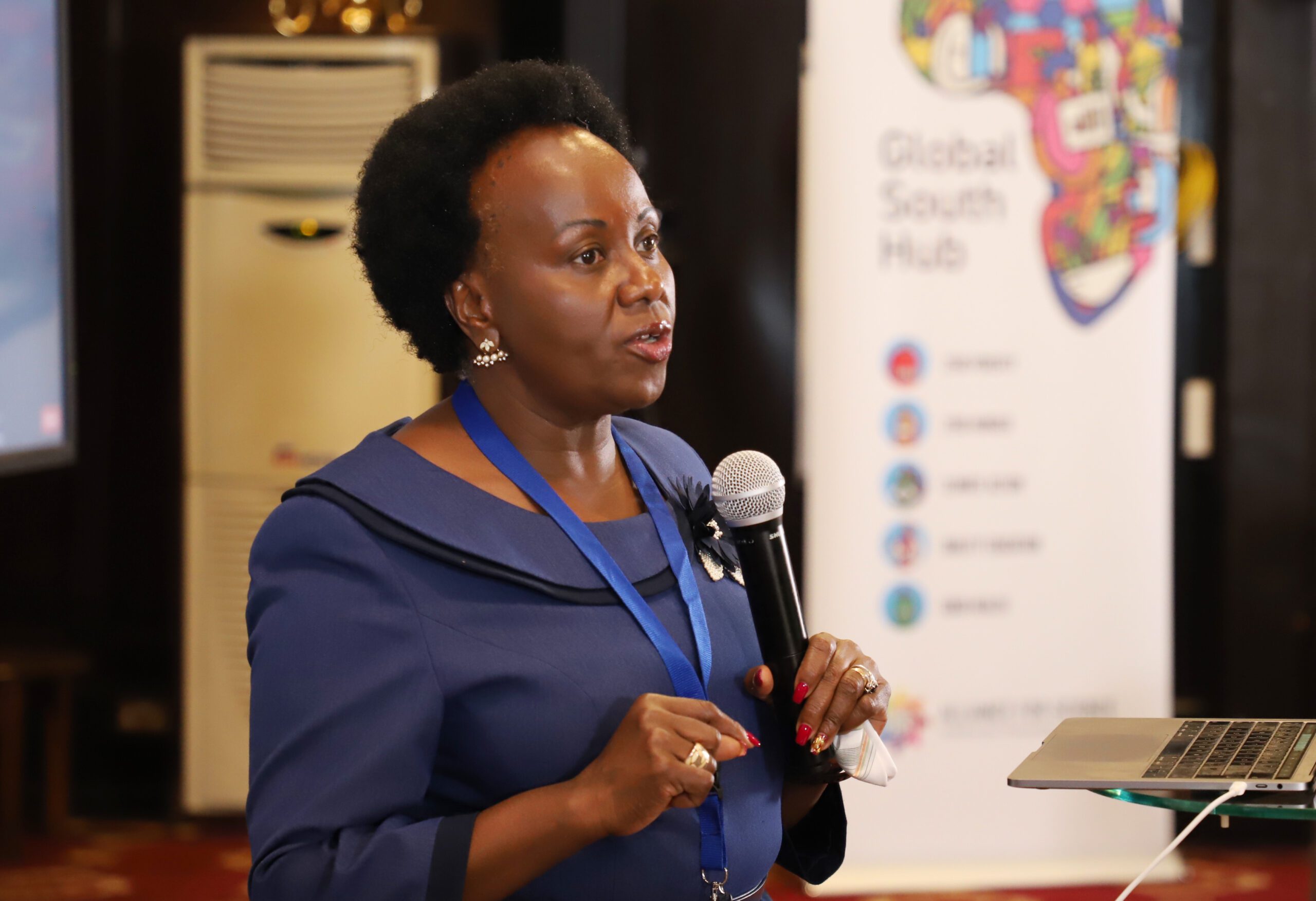
In her keynote address, Prof Patricia Kameri-Mbote, the Director of the Law Division at UNEP, said discussions around the law, science, and technology interface are not new. They have, however, come to the fore in recent years and have gone out of the purview of where lawyers are, she added.
“Therefore, lawyers don’t understand and, in some cases, don’t articulate the scientific questions raised, leaving the courts at a loss when determining GMO-related cases,” said Prof Mbote.
“It is not surprising that science-policy interface is becoming more and more pertinent because the intricate threats of scientific progress have influenced how society is shaped.”
She said as countries take up genetic engineering to address food security, they must also consider its impact on the environment.
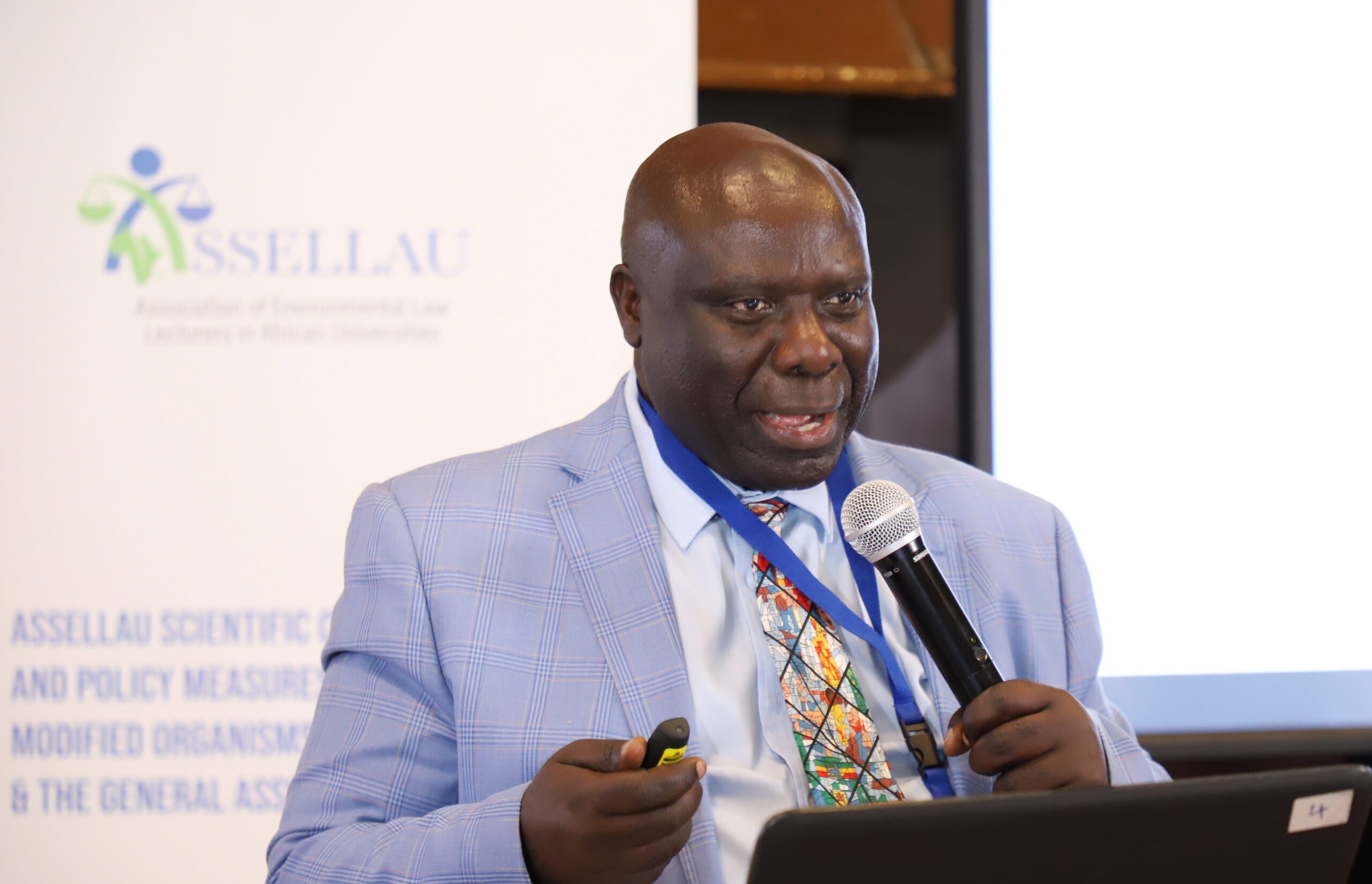
Emmanuel Kasimbazi, a law professor at Uganda’s Makerere University, underscored the important role of environmental law in regulating the development of GMOs.
He said the challenges in GMO development that environmental laws need to address include issues of safety to humans and the environment, intellectual property rights, trade, and biodiversity.
“There is also the challenge of failure to develop an effective regulatory framework that balances the interests of scientists, the policymakers, and peasant farmers,” said Prof Kasimbazi.
As African countries continue to adopt GM crops and develop laws to regulate them, Kenya’s regulatory framework is already robust.
“The regulation of GMOs is important because it ensures high protection levels for human and animal health and the environment.”
Prof Kasimbazi called for greater collaboration and coordination among environmental scientists, policymakers, and stakeholders from diverse sectors such as business, finance, and civil society.
As African countries continue to adopt GM crops and develop laws to regulate them, Kenya’s regulatory framework is already robust.
“Using the regulatory framework, Kenya has developed and tested Bt cotton, maize, and cassava in the field and many others in the laboratory and greenhouse.”
Some of the laws in Kenya include the Biotechnology Policy of 2006, Biosafety Act No. 2 of 2009, and at least four biosafety regulations.
“Scientists are also working in collaboration with regulatory agencies such as KEPHIS [Kenya Plant Health Inspectorate Service], NEMA [National Environment Management Authority], and the public health departments in the ministries of Health and Agriculture,” said Prof George Abong, an associate professor at UoN and the chair of Food Science and Technology Platform of Kenya.
“Using the regulatory framework, Kenya has developed and tested Bt cotton, maize, and cassava in the field and many others in the laboratory and greenhouse.”
_______________________________________________________________________________________________
Godfrey Ombogo is an editorial consultant, consulting science editor, and writer for Media for Environment, Science, Health and Agriculture (MESHA) in Kenya. He has been a reporter, sub-editor, and quality assurance editor at Daily Nation, The Star, and The Standard, respectively. He has also written for Talk Africa, an online multimedia content platform.
